(Note to readers: Below is Chapter I of my book, The Life and Times of Matthew Fontaine Maury, Pathfinder of the Seas. Additional chapters may be found on my contributor pages, here. -TM)
Almost four months had now come and gone since that memorable Autumn day when the great and eminent hydrographer suddenly hurried back to the abiding comfort of his Lexington, Virginia home. Crossing the plane of the threshold of his campus residence, under his own power for the very last time – his constitution weak, his complexion pale, his countenance uncharacteristically somber – he summoned the strength to exclaim to his beloved wife of forty-odd years, “My dear, I have come home to die.”
Their attention thusly drawn, his loving wife and daughters straightaway sprung to his assistance, each lending their ailing husband and father a part of her strength, gently assisting him through the house and into his bed, where they began to care for and to comfort him, relieving his suffering inasmuch as would be in their power to do. He spent that first night, and many subsequent days and nights during the next several months, stealing away a moment’s rest here, and another one there. That is, whenever his pain subsided enough to permit him so to do. As bad as things were, at least he was back home in Virginia, the state of his birth, in the comfort of his own bed and in the company of his beloved wife and daughters.
So unbearable had become his pain by the middle of January following – this despite the best and noblest efforts of the finest doctors in Virginia, and of the tenderest affections of his adoring family – that he was overheard by his youngest daughter, Lucy, to petition the Father of Mercies in fervent prayer that he might be permitted to pass from this life into the next where, his religion had instructed him, he should bear the pain of suffering no more. Under the tender care and watchful eye of his loving family did he pass those last remaining weeks and months of his glorious, active life.
Early in the month of October, 1872, the aged Commodore had summoned strength enough yet once more to make the long journey by rail to St. Louis, where the honor of his eminent presence had been respectfully requested. Here he was to give what would prove his final lecture at the meeting that year of the National Agricultural Congress in that burgeoning American city. Urging upon the farmers and ranchers of the agricultural states to consider well the enormous and untold benefits which must be derived to themselves of embracing his plan for holding an International Conference between leading agricultural and meteorological scientists from civilized nations throughout the world, he hoped that they, in turn, would expend every effort to convince the then indifferent national government to embrace the plan he himself had originally conceived and so long advocated, in behalf of the nation’s honor and the best interests of his fellow citizens. Nothing was to be gained of the scheme to himself. For as he painfully reminded his attentive audience on that cool October evening,
I am under the ban of the Nation, and can hold no office in it, either State or Federal. The moment the government takes hold of it, my association with it ceases. I cannot share in the honor of helping organize, or of assisting to carry it out.
His curious manner of speaking was in allusion to section III of the fourteenth amendment of the federal Constitution. Ratified by the requisite number of Union states four years before, in 1868, the fourteenth amendment declared all persons to be citizens entitled to due process rights and equal protection of the laws, who were or should afterward be “born or naturalized in the United States and subject to their jurisdiction.” As a means of carrying its measures into full and broad effect, section three was added for the specific purpose of preventing persons having previously engaged in “insurrection or rebellion against the United States,” or of “giving aid or comfort to its enemies,” from holding or occupying any office of trust or emolument under the United States or anywhere within its broadened jurisdiction, until such disability be duly removed by the explicit, concerted act of both houses of Congress.
But none of that would ultimately matter in Matthew’s case at any rate. For the final chapter of his active life was quickly drawing to a close. And as he well knew, even the great lawgiver of the Bible would only be permitted to peer from the mountain top, and witness from that great height and distance the abundance and beauty of the promised land for which he had so faithfully prepared the Israelites to take and possess after his death. Such would be the great man’s reward, and for such he could unhesitatingly exclaim, “blessed be the name of the Lord!”
As news was received of his inability to fulfill his duties at the Virginia Military Institute, and elsewhere of the cancellation of the remainder of his speaking tour due to the sudden turn of his health for the worse while in St. Louis a few days before, no one except the most hardened skeptics doubted the veracity of the report, and all made haste to return their deepest, most sincere expressions of regret and concerns for his speedy and full recovery. For everyone knew that of all men they had ever known or heard tell of, Commodore Matthew Fontaine Maury, the great Pathfinder of the Seas was not a man to break an engagement, nor to spend a moment in idleness or leisure when there was yet more work to be done. And there was always more work to be done.
Indeed, though he had spent the next four months agonizing in chronic pain and progressively growing weaker by the day in the narrow confines of his bed, there was yet work to be done updating and revising his Geography textbooks published some years before for the use of American homes and schools.
It was toward the end of his exile in England when the enterprising publisher from New York first approached him with the proposition of writing a series of age-appropriate geography school books. And in 1866 he set about to do just that, for ever since he was a small boy, he had often related, the foremost of his desires had always been to make himself useful in his life, whatever the nature of his employment or vocation. And this work of organizing and writing a series of geography textbooks to assist the teachers of the sons and daughters of his countrymen would be, as he said on first hearing of its proposition, most certainly making himself useful. So, with the aid of his attentive nurses he went to work from his bed dictating changes and updates to the geography books, that the young students of his books might not be given faulty, nor deprived of the most current information, due to any neglect of duty chargeable to his part.
The titles to which he would devote his energies in his final task in this life include First Lessons in Geography; The World We Live In; Manual of Geography and Physical Geography.

Geography is the science that treats of the earth and of its inhabitants, including the various peoples, tongues and nations in which consist its human inhabitants; of differences in their manners and customs, in their religions and mores, of their institutions and their forms of civil government. It is because of this nature of the subject, therefore, that the geography of man is subject to frequent alterations over time. Nations arise and nations fall, countries are called by one name at one time, and then they’re called by another later on. Boundaries are drawn and are later re-drawn, and so on.
There are also and always new discoveries in the various branches of science, or of new branches of science themselves. When such discoveries are made it is necessary to revise or update the textbook to reflect the appearance of these new and important discoveries. Thus, as the philosopher’s work is never done, but ever continuing and expanding with the acquisition of knowledge throughout the march of time and in the chain of human events, the discovery of new principles, of new laws and phenomena governing and directing nature in her course, or of the discovery of a more correct or convenient way of interpreting the laws which set and govern that course; so too must the student of science be ever so studious and prepared to understand these newly discovered yet ancient laws and concepts, and to discern how they fit within the wonderful machinery which the Creator so finely tuned when He designed it all and set it all in motion by the Word of His command at the beginning. There was also the matter of Commander Maury’s last will and testament; circumstances having changed such since he had first put it to paper during the war in 1862, adjustments must be made in a number of its parts so as to reflect his wishes in regard to these changes of fortune and of circumstances.
Thus, the great and eminent Pathfinder of the Seas passed the difficult final days and weeks of his life, aided by the sweet disposition and cheerful obedience of a devoted daughter and the easy labor of her willing pen.
In this chapter we have learned of the date and certain circumstances surrounding Commander Maury’s illness and death; in the chapters which follow, we shall learn of this great and good man’s extraordinary life, of his faith and character, of his professional and family life, and of his many achievements throughout.
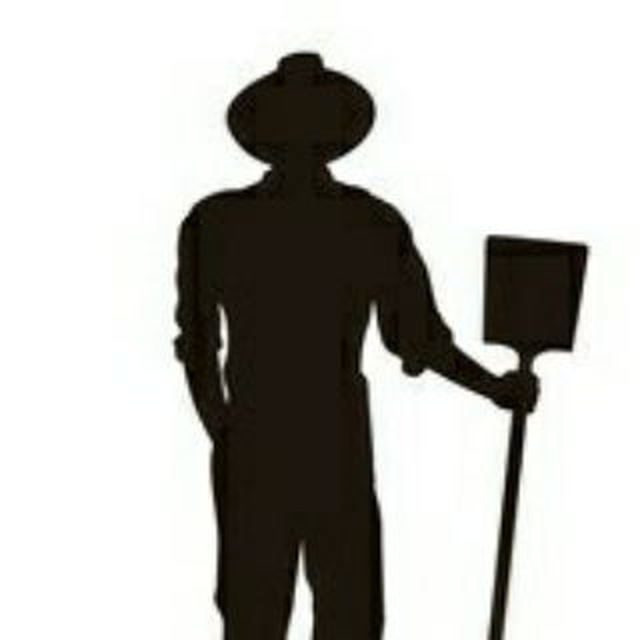

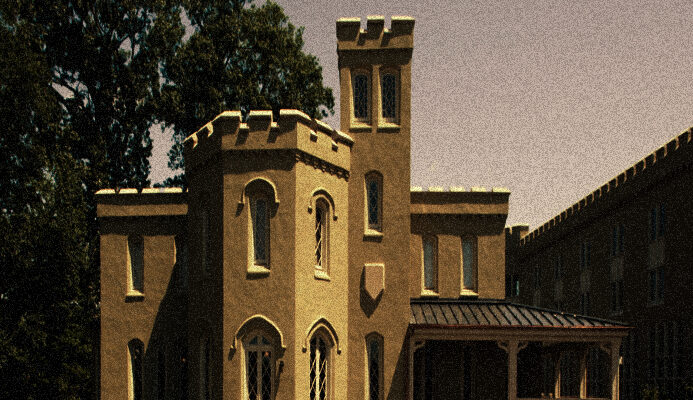
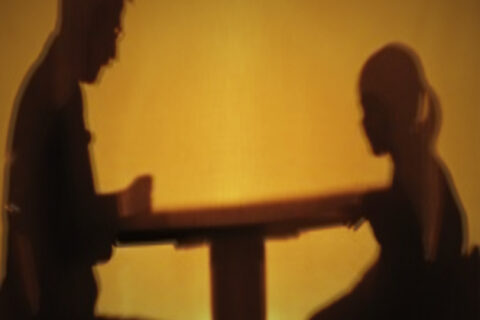
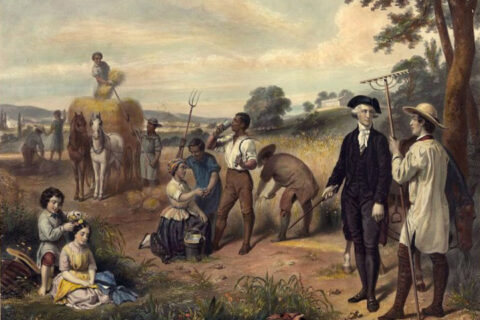
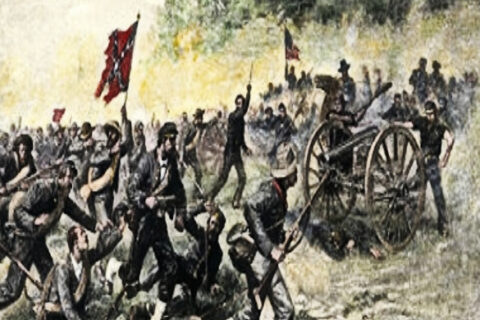

Thank you for this! I was a hydrographer and know a little about Maury’s legendary current mapping work, but looking forward to reading more about the man.
Hello, Don. Thank you for the positive feedback on the article! As I said in the parenthetical note to head the article, you may readily read several additional chapters of the book by way of perusing my contributor pages at this site. There are 23 chapters to the book in any case, so, I have several yet to submit for publication at this site or elsewhere. Stay tuned.
A refreshing break from our current struggle, and the story of a saint that finished his course well.
Thanks for sharing .